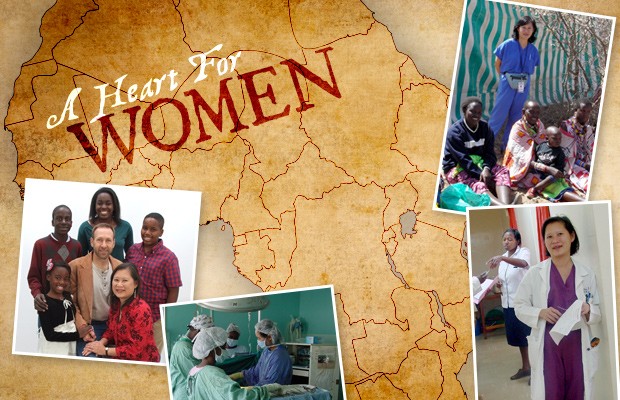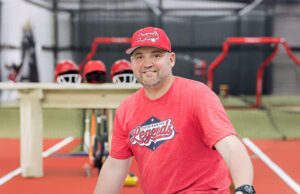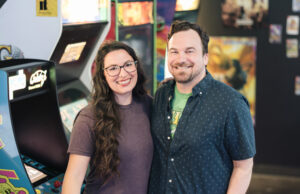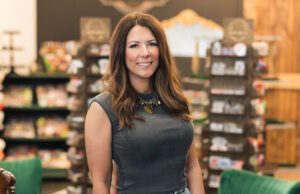A Heart For Women

Experiencing the pain and suffering that poverty, disease and war can cause sparked a greater calling in Dr. Kim Nguyen Smith at a young age. Growing up in Vietnam, she saw first hand how these situations could adversely affect a community’s livelihood. A bright spot in this scene was also seeing how medicine could touch people, both body and soul. She realized she could make contributions with medicine and change lives and society for the better.
When she was 11, Smith left her home country with her family. They spent six months in a refugee camp on one of Malaysia’s remote islands. She started the seventh grade in Houston knowing very little English. Just five years later, she was an undergraduate student at Rice University in Houston and began medical school at the age of 20.
Smith and her family relocated to Saline County in 2009 after three years working as medical missionaries in Kenya. “I was looking for an underserved area with potential for great growth,” she says of her decision to move here. In 2010, she joined Saline Memorial Hospital in developing a strong and committed group of OB-GYN physicians with a vested interest in serving Saline County.
Smith practices at Central Arkansas Women’s Group (CAWG). “This allows our physicians to practice medicine without the tremendous burden of running a business,” she says. “The group allows me the option to take extended time off work in third-world countries and not have to worry about disruption of patient care.”
The goal of CAWG is to provide access to quality and compassionate health care to women of all ages. “The clinic is not all things to all people, but it is all things for women,” adds Smith. “CAWG is a place where women’s services, women’s needs and women’s treatments aren’t simply the most important thing, they’re the only thing.”
Kim Titsworth, director of Physicians Services at Saline Memorial Hospital, notes how fortunate the hospital is to have Smith in its network. “Her passion for mothers and babies is evident in her personal relationship with each patient—and even more evident through her continued efforts to enhance healthcare for the women in Africa.”
As an active woman herself who wears many hats as wife, mother and professional, Smith was drawn to the OB-GYN field because she relates to the needs of women. Not only is she able to relate to their physical and mental health needs, but she also understands their role in society.
Smith’s husband, Dr. Nathaniel Smith, is the director of the Arkansas Department of Health. The two met in medical school at Baylor College of Medicine in Houston. Besides medicine, the Smiths’ need to serve others is what binds them. Nearly 20 years ago, they felt compelled to make a difference in a third-world country where health care is not readily available. On a visit to Kenya in 1996, they felt a special calling. “We are interested in sharing God’s love through medicine, and when we visited Kenya, we knew this was where God wanted us to serve as medical missionaries,” she says.
During their first term in Kenya from 1999 to 2002, the Smiths set up one of the first programs to prevent mother-to-child transmission of HIV through a grant from the Elizabeth Glaser Pediatric AIDS Foundation. During their second term of service from 2006 to 2009, they worked with AIDSRelief–out of University of Maryland, Institute of Human Virology–to develop HIV/AIDS counseling, testing and treatment programs for East Africa (Kenya, Uganda and Tanzania). By having women attend prenatal clinics, Smith says, “these countries have experienced a significant decline of HIV.”
One patient story Smith holds dear to her heart involves a 40-year-old women whose successful corrective surgery left her dancing with a happiness she hadn’t felt since she was 12. While in Kenya, Smith provided surgical repair for women suffering from obstetrical fistula. The United Nations High Commissioner for Refugees sent several of these patients from a Somalia refugee camp to Smith’s hospital for her to perform surgery.
Because of prolonged obstructive labor, these young women ended up with stillborn babies and trauma to the birth canal that makes them constantly leak urine. They often are shunned by their families and communities because of the foul smell and infertility that results from the trauma.
This particular patient had been living with the condition since she was 12. On the day of discharge, Smith found the woman dancing in a new dress that she made in the hospital ward. “She told me that God had not forgotten her and that God had sent me to heal her,” Smith says. “She said she now has a new body and a new hope. I felt such gratitude that God allowed me to be a small part of this miracle.”









0 comments